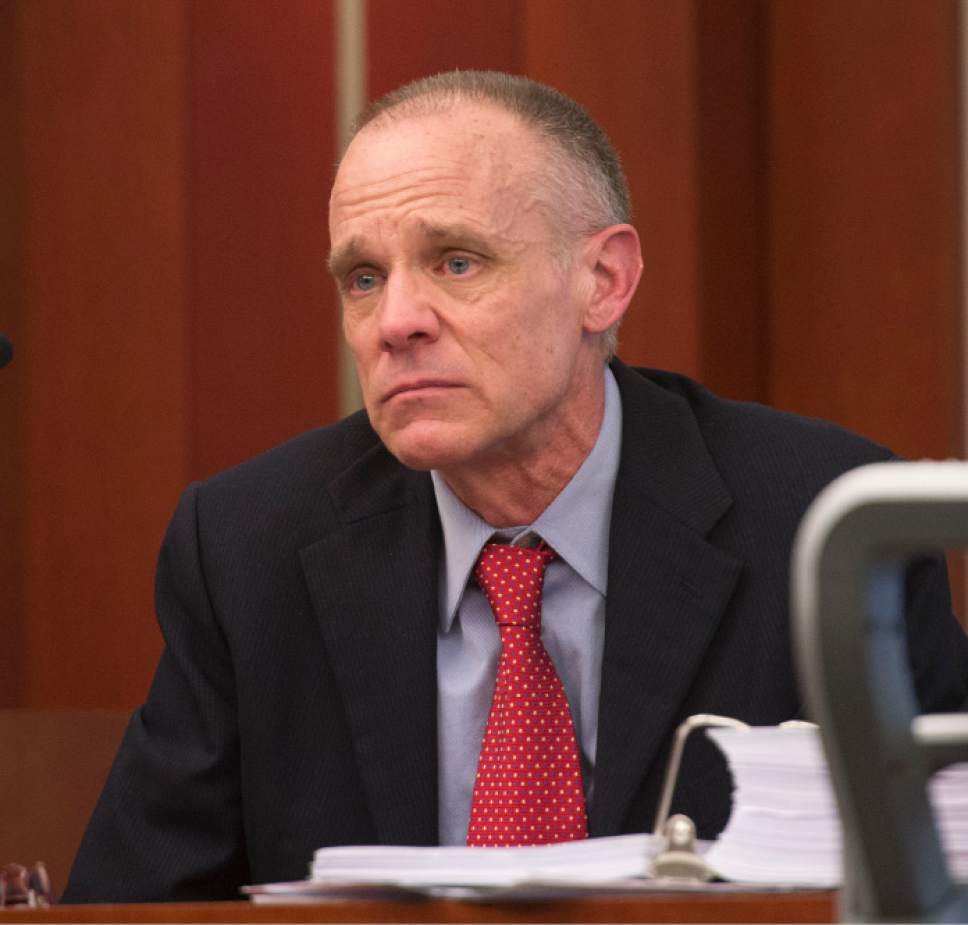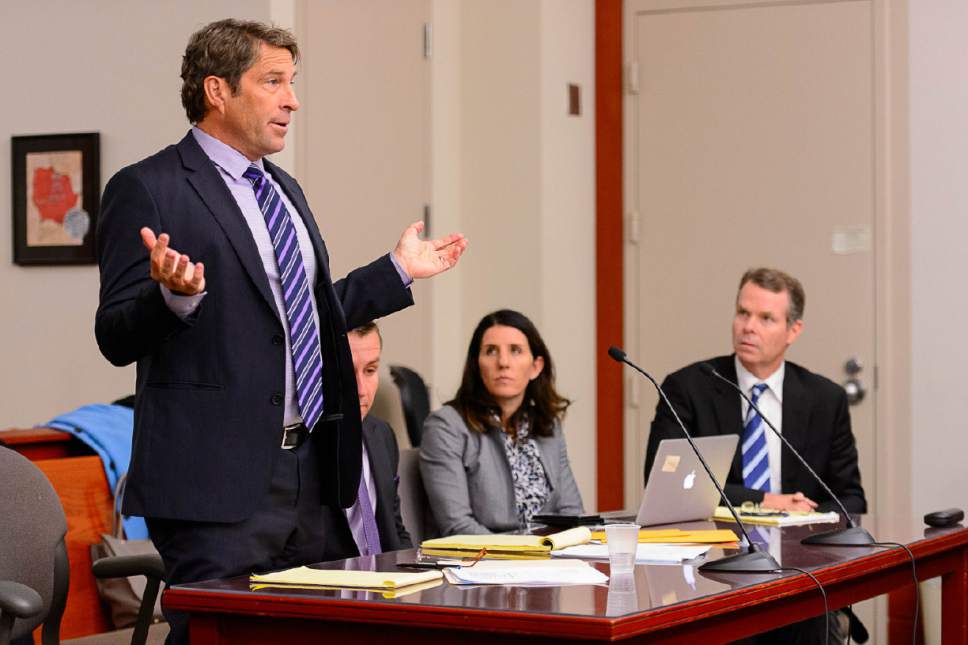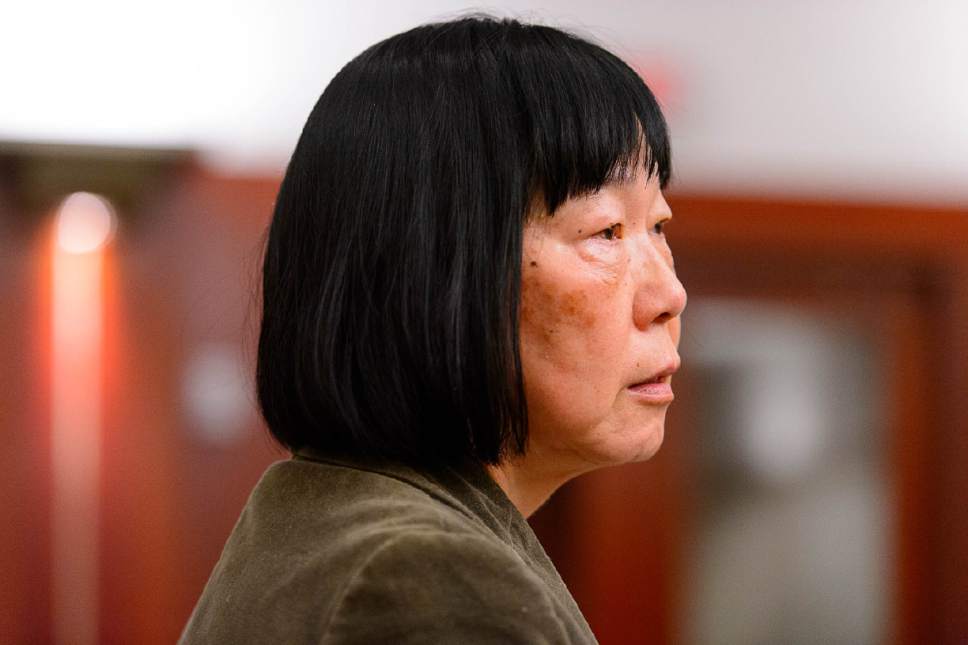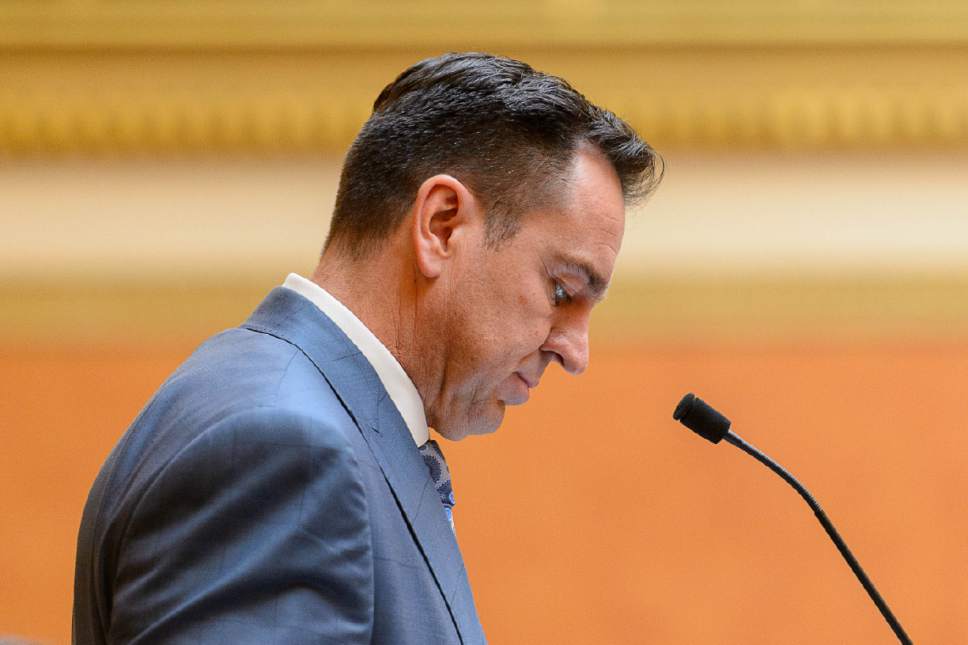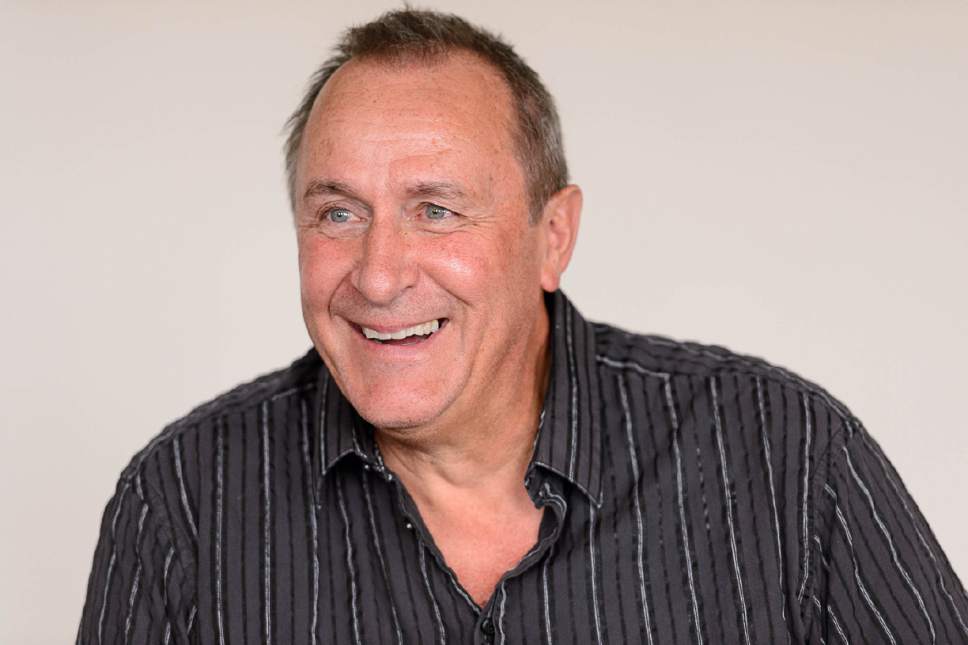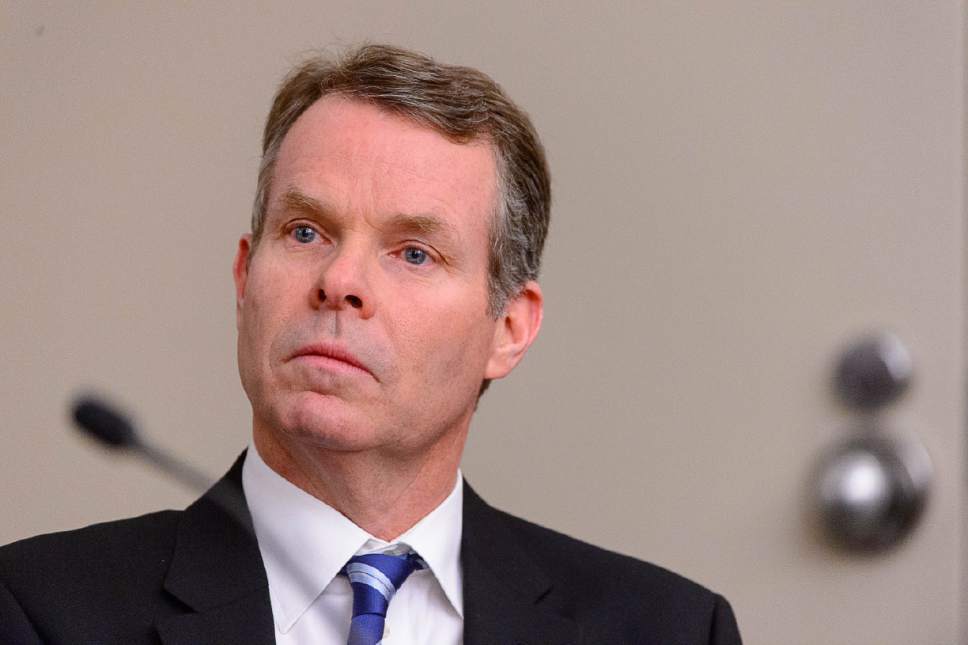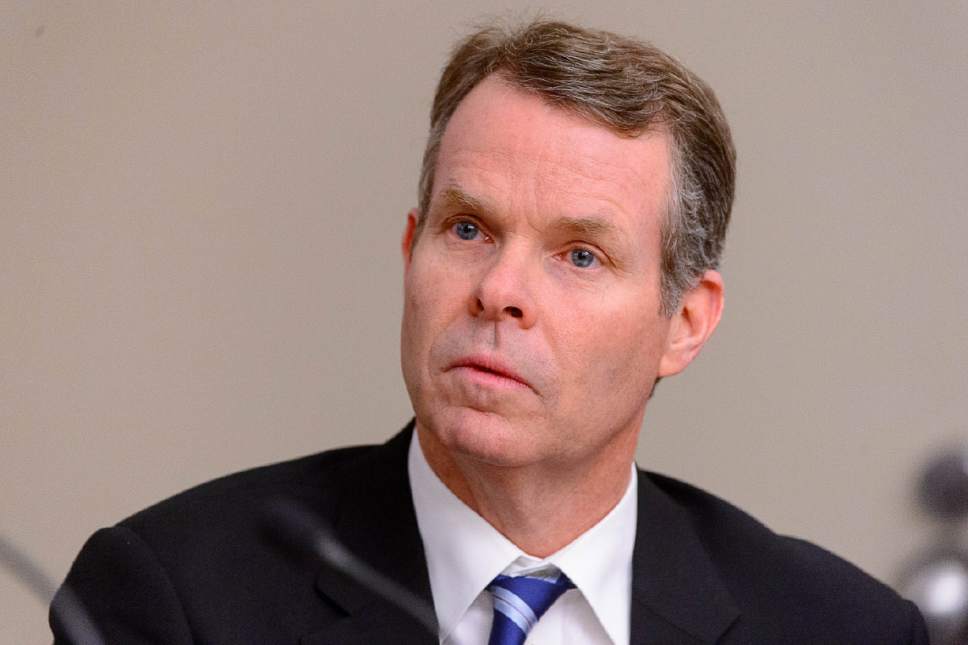This is an archived article that was published on sltrib.com in 2017, and information in the article may be outdated. It is provided only for personal research purposes and may not be reprinted.
Jury selection is set to begin Tuesday in the public corruption trial of former Utah Attorney General John Swallow, four years after he first was accused of misconduct in what mushroomed into the most sweeping political scandal in state history.
Swallow, 54, has pleaded not guilty to 13 felony and misdemeanor charges, including counts of racketeering, bribery, accepting a prohibited gift, evidence tampering and obstruction of justice.
The 2014 charges followed allegations of a pay-to-play climate inside the Utah attorney general's office and a multiyear investigation by state police and the FBI, which also ensnared Swallow's immediate predecessor, Mark Shurtleff.
Swallow's 3rd District Court trial is expected to last at least 16 days and, if convicted, the former GOP officeholder could spend up to 30 years in prison.
A jury of eight, with four alternates, will hear the case.
Out of concern for the high-profile nature of the case, Salt Lake County prosecutors asked the court to call a pool of 200 potential jurors.
Juror selection is being handled through a two-step process.
Step one saw juror candidates filling out a written survey designed to whittle the possible pool down to a smaller number. The second part, called voir dire, takes place Tuesday in court under questioning from prosecutors and Swallow's lawyers.
Possible jurors filled out the survey Jan. 26, but it is unclear what they were asked, because the document has not been made public. The Salt Lake Tribune sought to obtain the questionnaire, but the courts declined to release it, citing an objection from Swallow's attorney Scott C. Williams.
Williams declined to comment Monday why he objected.
At a hearing in January, Swallow's attorneys asked the court to keep the document private — at least temporarily — to protect the names of defense witnesses who had concerns about being identified publicly before the trial.
"Many witnesses in this case don't want to be in the public. They don't want to be harassed by other members of the public, by the press, sure, but more importantly by law enforcement," Williams said after the hearing, "Many of them already explained that they already have been harassed and they would rather go tell their story on the witness stand when the time comes."
It's unclear how long it might take to select a jury, although Judge Elizabeth Hruby-Mills has expressed a hope that the process would not take more than a day.
The jury could hear from more than 120 witnesses during the trial. A list of potential witnesses for prosecutors, posted on a court website Monday, contained 52 names, including former Swallow campaign staffers, current and former employees of the Utah attorney general's office and several Utah businessmen who sought assistance from, or access, to Swallow and Shurtleff.
The state's first witnesses is expected to be Marc Sessions Jenson, a once-imprisoned businessman who testified last month that he footed the bill for multiple trips Swallow and Shurtleff made to the luxury Southern California resort, Pelican Hill. The trips came while Jenson was on probation in a securities case filed against him by Shurtleff's office, but before Swallow went to work for the three-time attorney general.
Included in Jenson's testimony were allegations that during the second trip, Utah House Speaker Greg Hughes, R-Draper, retired Sen. Harry Reid, D-Nev., and UTA officials held a secret meeting in Jenson's office to discuss development projects.
Hughes has steadfastly denied the allegations. Reid's office has not responded to requests for comment.
That revelation had Williams saying that Hughes, Reid, UTA officials and others who allegedly attended the meeting could be added to his yet-to-be disclosed witness list.
Shurtleff, whose parallel criminal case was dismissed last year, also could be called as a witness. He told The Tribune on Friday that he had met with Williams but had not received a subpoena to testify.


